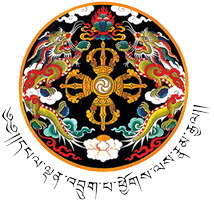Jigme Namgyel Engineering College
The Jigme Namgyel Engineering College (JNEC), formerly known as Royal Bhutan Polytechnic (RBP), is one of the constituent colleges of the Royal University of Bhutan (RUB). It is situated at 800m above the mean sea level and is located at the west end of Dewathang town, 18 kilometers away from Samdrup Jongkhar town, second gateway to Bhutan from Assam in India. The College started with the infrastructure development since 1972, coinciding with the 3rd five-year development plan of the country and the enrolment of students for the Diploma level programmes in engineering was started from 22nd February 1974. At the initial stage of its development, it offered Diploma level Programmes in Civil and Electrical Engineering. The Diploma Programme in Mechanical Engineering was introduced from 1988. The college also trained three batches of surveyors (certificate level) from 1974 to 1978 and three batches each of surveyors and draft persons from 1986 to 1990. The enrolment in certificate level programme was discontinued from 1988. JNEC was the only tertiary level institute providing education in engineering till 2001 with the mandate to meet the engineering manpower requirement of the country.
In April 2000, the then Royal Bhutan Polytechnic was temporarily shifted to Rinchending, Phuentsholing due to security reasons in southeastern part of the country and continued to offer diploma in Civil, Electrical and Mechanical Engineering programmes from RTI, Rinchending campus. While at Rinchending campus, two programmes at bachelor’s level (Bachelor of Engineering in Civil Engineering and Bachelor of Engineering in Electrical Engineering) were introduced in August 2001 and the institute was named as Royal Bhutan Institute of Technology (RBIT), the present College of Science and Technology (CST). With the establishment of the Royal University of Bhutan in June 2003, JNEC (the then RBIT) became the constitute college of Royal University of Bhutan (RUB).
In June 2006, the diploma level programmes offered at RBIT were relocated to its original campus at Dewathang. In August 2006, the college was named as Jigme Namgyel Polytechnic (JNP). The name of the College “Jigme Namgyel Polytechnic” and its location at Dewathang has great significance to the history of Bhutan honoring the Druk Desi, Jigme Namgyel, the father of the first King of Bhutan for his victory over British colonization from this location in 1841. Also on December 15, 2003, Royal Bhutan Army lead by the Fourth Druk Gyelpo, His Majesty Jigme Singye Wangchuk, conducted an Operation All Clear to drive away the Assam separatist insurgent groups from the Country. This College campus was the main command center. Therefore, Jigme Namgyel Engineering College is proud to be honored with the name of the father of Wangchuk Dynasty.
To keep in pace with the infrastructural development initiative of the country and to meet the increasing demand for the technical graduates, the enrolment of students in all the programmes were increased by almost 100 percent from 2006 to 2011. The development of new programmes was initiated as a priority area and 5 new programmes were introduced from 2010 to 2015 including the first Bachelor level Programme in Power Engineering. In 27th October 2015, the name of the college was changed to Jigme Namgyel Engineering College with the inauguration of the Bachelor of Engineering in Power Engineering.
The college aspires to become the center of excellence in providing Diploma level programmes in Engineering, Technology and Management, selected applied Bachelor level programmes, continuing education programmes, material testing and certification, research, consultancy and community services through the various modes of deliveries including distance. At present the college offers 8 programmes, 7 at Diploma level and one at bachelor’s level. The college has plans to develop and offer several new programmes within the 12th five-year development plan of the country.
The Programmes offered at JNEC are targeted to meet the engineering man power requirement of the country to support the country’s infrastructure development and also maintain the condition of the developed infrastructure in best possible health so that inhabitants are free from any risks associated with the management and maintenance of infrastructure.
As the country’s GDP grows, the living standard of people increases demanding better infrastructure facilities and increase level of consumption of resources. The graduates of JNEC will have to be responsive to the increasing demand for infrastructure both in quantity and quality and therefore the programmes at JNEC are helpful to uplift the socioeconomic condition of every Bhutanese fellow mate. The programmes design has given full consideration to meet the learning requirement of the graduates and therefore the programmes are very responsive the current needs of the country.
Source: JNEC Website (https://www.jnec.edu.bt)
Contact us
- Dzongkhag Administration Samdrup Jongkhar, Bhutan
- Post Box No: 249
- 07-251265
